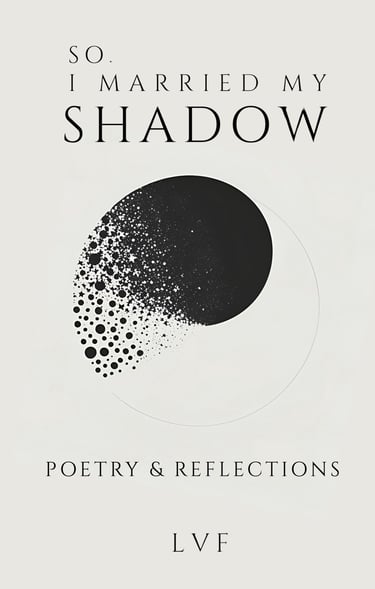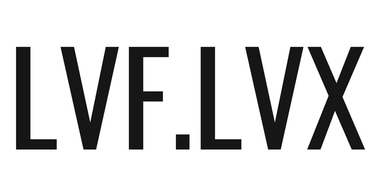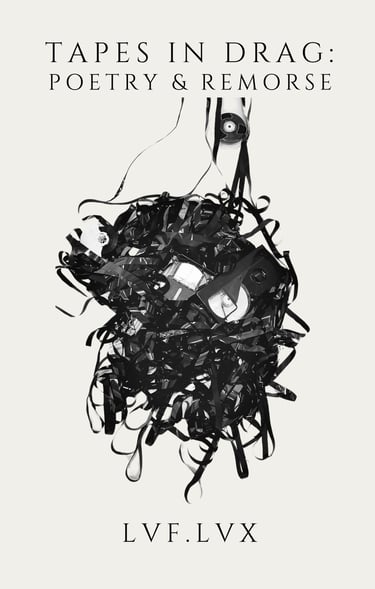The Power of Self-Reflection and Literary Experimentation
Honest writing, inner work, and literary risk-taking — with LVF.
LVF
6/17/20252 min read
In an era where attention spans are short and content is often regurgitated; literature still offers something radical: time. Time to reflect. Time to feel. Time to slow down. And for those of us who write, literature becomes a space of experimentation—where identity, language, and the subconscious collide in unexpected ways.
When I published Tapes in Drag: Poetry & Remorse, I wasn’t trying to fit into any particular literary mold. In fact, the collection emerged as an experiment in emotional honesty and artistic self-reflection. I wanted to see what would happen if I stopped editing myself to fit a persona and instead allowed the full spectrum of my interior world to bleed onto the page unapologetically.
The result was raw, intimate, and (as many readers told me) deeply relatable. But more importantly, the process taught me something that I believe is critical in the contemporary literary space: self-reflection is not only a tool for personal growth—it’s the cornerstone of meaningful art.
Writing as Inner Alchemy
We live in a time when “authenticity” is a buzzword, but true self-exploration requires more than vulnerability. It asks for courageous accountability—the willingness to examine your own contradictions, your unconscious biases, your internalized conditioning.
This is the terrain I explore in both my poetry and my shadow work practice: examining inner duality, questioning oneself daily, and facing the uncomfortable truths we often avoid. My hope is to encourage more writers and readers to embrace complexity rather than avoid it.
Why Experimentation Matters
Experimental writing is often misunderstood. People think it means obscure or inaccessible work. But experimentation, at its heart, is simply the refusal to write in default mode. It’s the decision to challenge form, disrupt expectations, and test the boundaries of genre and structure.
In Tapes in Drag, I fused stream-of-consciousness with poetic structure, layered regret with metaphor, and let my past remorse become a character in its own right. To some, it's a bit avant-garde. For me, I was just being honest.
If that resonates with you, I’d love to connect. And if you’re curious about Tapes in Drag: Poetry & Remorse or So, I Married My Shadow, my inbox is open.




